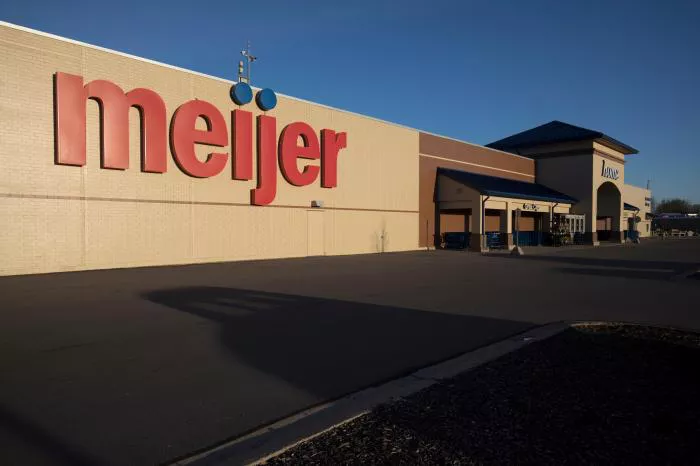In a bid to support families with young children, Meijer has launched a new program aimed at facilitating the safe recycling of old baby gear while providing discounts on new purchases. Running from October 27 to November 9, the “Baby Gear Recycle” program enables customers to bring in items such as car seats, strollers, and booster seats, which can then be recycled responsibly. In return, participants receive a 25% discount on select new baby gear, helping parents upgrade to safer, newer models at a reduced price.
The program marks a significant step by Meijer in promoting both safety and environmental responsibility, offering families a practical way to dispose of aging baby equipment that may otherwise end up in landfills.
Convenient Recycling Locations at Customer Service Centers
The process to participate in the Baby Gear Recycle program is straightforward. Customers can bring their old baby gear to designated bins located at Meijer’s customer service centers, making the recycling process both accessible and convenient. Whether it’s a worn-out stroller or a car seat that has reached its expiration date, Meijer provides an easy solution for families looking to clear out old equipment.
According to Matt Campbell, Meijer’s Buyer of Baby Gear, the initiative is designed not only to give customers a practical way to dispose of these items but also to incentivize them with a discount on new, safer models. “To help the customer,” Campbell explained, “we’re providing an opportunity for them to get rid of their old car seats, strollers, or booster seats and recycle responsibly. At the same time, they can upgrade to something new and take advantage of a discount.”
Why Recycle Old Baby Gear? Safety and Environmental Benefits
The importance of recycling old baby gear extends beyond merely making space for new items. Safety is a primary concern, particularly with car seats, which typically expire three to four years after their manufacturing date. These products are essential for child safety during travel but lose effectiveness over time due to wear, material degradation, and evolving safety standards. By encouraging the recycling of outdated gear, Meijer’s program supports parents in replacing potentially unsafe items, contributing to improved child safety.
Beyond the household, this program tackles a growing environmental issue. Car seats, strollers, and booster seats are often made from materials like plastic, metal, and foam, which can take years to break down in landfills. Proper recycling keeps these materials out of waste streams, aligning with Meijer’s commitment to sustainability and reducing landfill waste. The Baby Gear Recycle program thus offers an environmentally friendly alternative for families looking to dispose of their old baby equipment responsibly.
Meijer’s Commitment to Customers and Community
As a retailer deeply embedded in the communities it serves, Meijer’s launch of the Baby Gear Recycle program reflects its dedication to customer well-being and sustainability. Campbell emphasized that the program is part of a broader initiative to support families with young children and provide them with convenient, affordable solutions.
“We understand that parenting involves continuous upgrading of baby gear to keep children safe and comfortable,” Campbell noted. “This program makes it easier for families to stay up-to-date with safer equipment while also considering the environmental impact of disposing of older items.” By offering a discount, Meijer also recognizes the financial commitment required for new gear, helping to ease the burden on families by making upgrades more affordable.
Promoting Responsible Consumer Practices
Meijer’s initiative aligns with a growing trend among retailers to encourage consumers to adopt responsible practices when it comes to disposal and replacement. With baby products, the safety concerns are especially critical, given the risks associated with expired or worn-out gear. Meijer’s approach, which combines recycling with a financial incentive, encourages families to be mindful of these issues without the pressure of a full-priced replacement.
The program also highlights Meijer’s responsiveness to customer needs. Many parents may be unaware that car seats and other baby gear have expiration dates, and this recycling initiative raises awareness about the importance of timely replacements. It’s a valuable reminder that items like car seats aren’t built to last indefinitely, and replacing them as they age is a crucial step in maintaining child safety.
Future Outlook: Building on Sustainable Initiatives
The Baby Gear Recycle program is a significant addition to Meijer’s community-oriented projects and reflects a forward-thinking approach to sustainability and customer support. By addressing a practical concern for families while offering a responsible solution for waste reduction, Meijer is setting a strong example for other retailers to follow. The success of such programs could inspire similar initiatives across the retail sector, encouraging more companies to integrate sustainability and safety into their customer offerings.
Looking ahead, Meijer’s commitment to reducing waste and promoting safe consumer practices could expand to include other products, fostering a culture of sustainability within the communities it serves. As Meijer takes steps toward environmental responsibility, the Baby Gear Recycle program is a notable stride in balancing convenience, safety, and ecological mindfulness for the benefit of both families and the planet.
Conclusion: A Practical Solution for Safe and Sustainable Parenting
Meijer’s Baby Gear Recycle program provides an innovative approach to addressing two key concerns for parents—child safety and environmental responsibility. By offering a convenient recycling option and a discount on new purchases, Meijer supports families in keeping their children safe while managing household budgets. This program not only helps parents make informed choices about the safety of their baby gear but also promotes a sustainable solution to reduce waste.
In facilitating the safe disposal of old car seats, strollers, and booster seats, Meijer continues to demonstrate its dedication to community well-being and environmentally conscious practices. As the program progresses, it may pave the way for similar initiatives that address safety and sustainability in everyday family life, reinforcing Meijer’s role as a trusted partner for families across Michigan and beyond.
Related topics:


